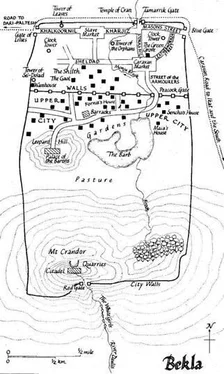Richard Adams - Maia
Здесь есть возможность читать онлайн «Richard Adams - Maia» весь текст электронной книги совершенно бесплатно (целиком полную версию без сокращений). В некоторых случаях можно слушать аудио, скачать через торрент в формате fb2 и присутствует краткое содержание. Жанр: romance_sf, на английском языке. Описание произведения, (предисловие) а так же отзывы посетителей доступны на портале библиотеки ЛибКат.
- Название:Maia
- Автор:
- Жанр:
- Год:неизвестен
- ISBN:нет данных
- Рейтинг книги:4 / 5. Голосов: 1
-
Избранное:Добавить в избранное
- Отзывы:
-
Ваша оценка:
- 80
- 1
- 2
- 3
- 4
- 5
Maia: краткое содержание, описание и аннотация
Предлагаем к чтению аннотацию, описание, краткое содержание или предисловие (зависит от того, что написал сам автор книги «Maia»). Если вы не нашли необходимую информацию о книге — напишите в комментариях, мы постараемся отыскать её.
Maia — читать онлайн бесплатно полную книгу (весь текст) целиком
Ниже представлен текст книги, разбитый по страницам. Система сохранения места последней прочитанной страницы, позволяет с удобством читать онлайн бесплатно книгу «Maia», без необходимости каждый раз заново искать на чём Вы остановились. Поставьте закладку, и сможете в любой момент перейти на страницу, на которой закончили чтение.
Интервал:
Закладка:
What he outlined-once it had become clear to her- made the blood beat in Fornis's head and aroused her so powerfully with its mixture of deadly risk, cruelty, wickedness and great gain that she almost offered herself to him on the spot. She realized, however, that this would merely earn his contempt. In the real world, appreciated by only a perceptive few, the enjoyment of bodies-zard and tairth- was a superficial matter. Anyone physically attractive was good enough for that. What lay between her and Sencho was something far colder and deeper. This real world she had now been invited to enter; if she chose. If not, she was free to decline, and know for ever after that her show of audacity and ruthlessness had been a mere act, a bluff which Sencho had called.
Sencho's proposition was that they should destroy the de facto government in Dari-Paltesh by first suborning the soldiery and then deliberately murdering her uncles and anyone else in their entourage sufficiently powerful to merit it. Thereafter Fornis would be able to live entirely as she wished and make use of as much of the provincial revenue as she liked. He himself would finance the preparations and provide the necessary bribes, which would need to be large. He also had, ready and willing to discuss the matter further, two suitable and resolute men-soldiers of fortune-who, with the cooperation of some of her own intimates in Paltesh, he felt would be equal to pulling off the necessary mutiny and bloodshed.
Fornis was fascinated by his contempt for humanity and his cold zest for gain through treachery and destruction. This, she now realized, was what she had unknowingly been seeking in flouting her family and outraging the orthodox. Those, though mere games of a child, had nevertheless served their turn by leading her to this present, clear vision. She had thought herself a hedonist; she had been wrong. She had been born for a more demanding, worthwhile vocation-the seizure and exercise of power.
Meeting Sencho's fellow-conspirators, her confidence grew. Han-Glat, aged about thirty, was a former slave promoted and freed after more than ten years' valuable service in the army, during which he had distinguished himself by showing remarkable ability in the sphere of fortifications and similar military works. Nothing would appear more natural than that he, now his own master, should seek still further advancement by active service in Paltesh.
The second man, Kembri-B'sai, was a compelling figure; the embittered younger son of an impoverished baron in Lapan. Huge, black-bearded and taciturn, he looked a warrior capable of wading through oceans of blood without turning a hair. A professional soldier with a good record, for some unknown reason he had nevertheless been disappointed in his hopes of advancement under Senda-na-Say, against whom he entertained a brooding hatred.
The plot took two years to come to fruition and was entirely successful. Fornis showed herself a model of cunning and duplicity. Having completely regained the confidence of both her uncles by a convincingly sustained show of contrition and reformed ways, she was able with little
difficulty, on the night of the coup, to poison them both, at the very time when Kembri and Han-Glat, having brought their mutiny to the boil, were killing the Palteshi commanders in Dari.
In such affairs, one step tends to compel the next. Sen-cho and Kembri had foreseen this, though Fornis had not. Senda-na-Say in Bekla could seem to ignore much of the internecine quarrelling of the provinces, but this he could not ignore. The conspirators' night's work had seriously weakened the effective strength of the empire to resist Terekenalt, and in all probability only the onset of the rains (Kembri had timed the business with this in mind), putting an end to campaigning for that year, had averted an immediate invasion of Suba by King Karnat. Fornis was summoned to Bekla to give an account of herself and of the death of her uncles.
She declined to go, pleading at first illness and then, with some plausibility, the impossibility of travelling seventy miles over roads more than ankle-deep in rain and mud (though her secret messengers continued to reach Sencho throughout the winter). Nor was Senda-na-Say prepared to travel then, being beset nearer home with difficulties of a nature and gravity which his predecessors had never encountered.
The truth was that Senda-na-Say had first failed to grasp and then completely under-rated the profound social change in Bekla brought about by the growth of trade and wealth. Years before, he had inherited a realm based on aristocracy and land tenure, but these were now of diminishing importance in a society increasingly full of moneyed commoners-many richer than nobles and actually able to buy them up-impatient for recognition and influence commensurate to their wealth and the taxes they paid. Not surprisingly, he and his associates had little time for people like Sencho and Lalloc; but less excusably, they were not ready to listen to more acceptable representatives of the merchant and craftsman class-men such as Fleitil, for instance. Whether they pretended or whether they genuinely thought that there was nothing to discuss, the effect was the same. They lost the confidence of their most affluent subjects, men well able to bribe servants to spy and soldiers to desert. Also turning against them was the newly-formed clique of Beklan nobles calling themselves the
Leopards, several of whom had friends (and creditors) among the merchants.
With the return of the spring, envoys were once more sent to Dari-Paltesh, with a mandate that Fornis should return with them at once. For three weeks nothing was heard. Then came news more disturbing than any received by a ruler of Bekla in living memory. Fornis, having agreed with King Karnat of Terekenalt to offer no resistance to his occupation and annexation of Suba, in return for his promise to desist from further attacks on Paltesh, had publicly declared herself Sacred Queen of Airtha and, with Kembri and Han-Glat at the head of a considerable force, was about to advance on Bekla.
The office of Sacred Queen was a religious, not a political one. Traditionally, the Queen's role was to officiate as chief priestess in the temple of Cran and in particular, at the great spring festival held each year as soon as the rains had ended, to perform her ceremonial coupling with the god in the presence of the rulers, nobility, priests and chief dignitaries of Bekla. Nine months later, at the winter solstice, she gave symbolic birth to the new year in a ceremony attended only by her own priestesses and certain noblewomen of the city. A new Sacred Queen of Airtha was chosen by popular acclaim every fourth year, immediately after the ritual birth. Although the people usually acclaimed a well-born and beautiful girl of good family, and although the office conferred great honor, it had never involved any political influence, even for the Queen's male relatives. Very often, in practice, the Queen was content to leave the esoteric work and ritual of the temple to the professional priesthood, herself simply playing her appointed part on ceremonial occasions and notably at the two festivals.
Fornis's claim to be Sacred Queen, in a year when a new Queen fell to be chosen, was a most adroit move which had, of course, originated with Sencho and already been agreed to by Han-Glat and Kembri. Whatever her reputation, Fornis's beauty and nobility were incontestable. These she now turned to account. Having known in her heart for years-so ran her proclamation-that the god intended her for his Sacred Queen, she had abstained from marriage; and on this account had suffered injustice and slander for his sake. Now her hour had come, and she called upon all
true devotees of Cran and Airtha to support her in her holy vocation.
Thanks largely to Sencho, Lalloc and others, there were many in Bekla ready to uphold her. As in Dari, the common people tended to idolize Fornis for her beauty and audacity. Several of the Leopards supported her, having already become her adherents in the upper city. What possible objection could there be, said these young men, to Fornis becoming Sacred Queen? The Sacred Queen, whoever she had been, had never harmed anyone, and anyway the temple and its priests could do with gingering up a bit. Gradually it was borne in upon Senda-na-Say first, that there were regiments in the army upon which he could place no more than doubtful reliance, and secondly that his only practicable strategy was to try to defeat Fornis before ever she reached Bekla. If she were to succeed in entering the city, her very presence would split it apart.
Читать дальшеИнтервал:
Закладка:
Похожие книги на «Maia»
Представляем Вашему вниманию похожие книги на «Maia» списком для выбора. Мы отобрали схожую по названию и смыслу литературу в надежде предоставить читателям больше вариантов отыскать новые, интересные, ещё непрочитанные произведения.
Обсуждение, отзывы о книге «Maia» и просто собственные мнения читателей. Оставьте ваши комментарии, напишите, что Вы думаете о произведении, его смысле или главных героях. Укажите что конкретно понравилось, а что нет, и почему Вы так считаете.












